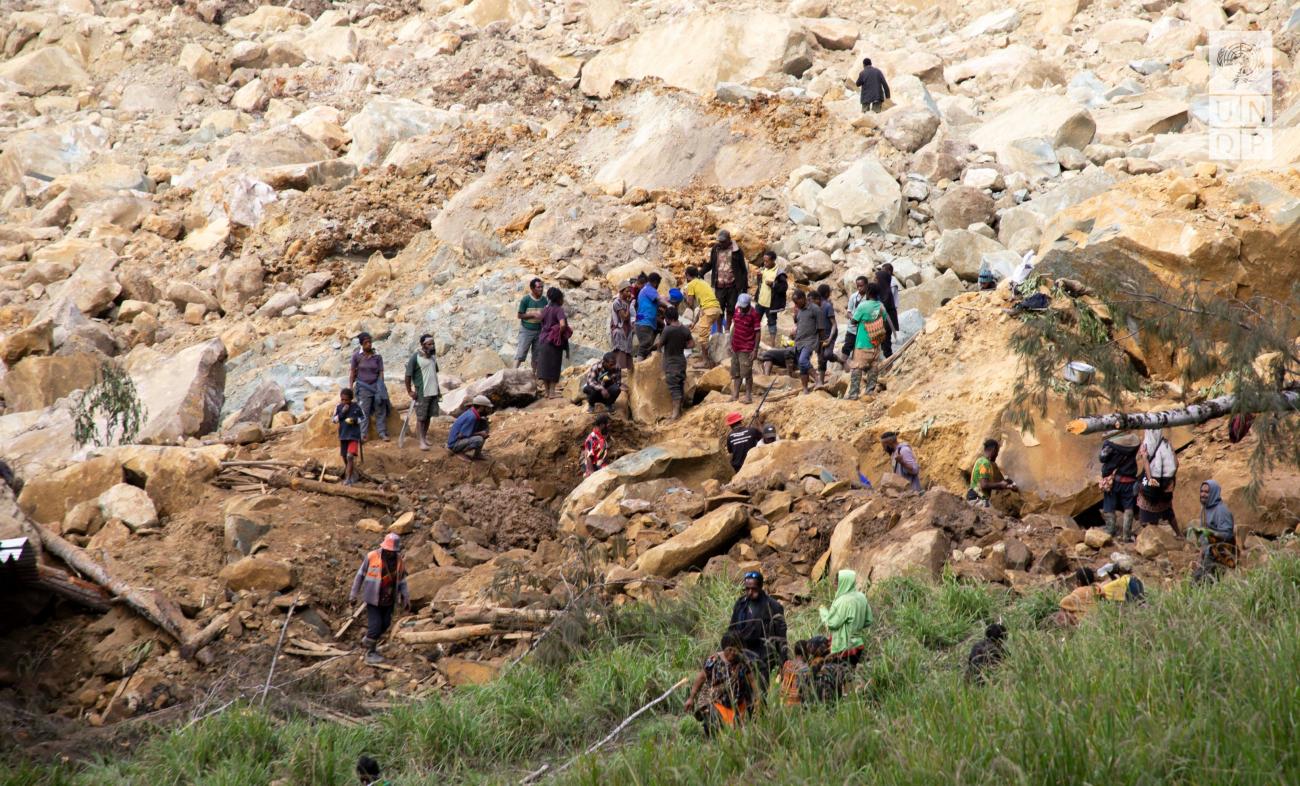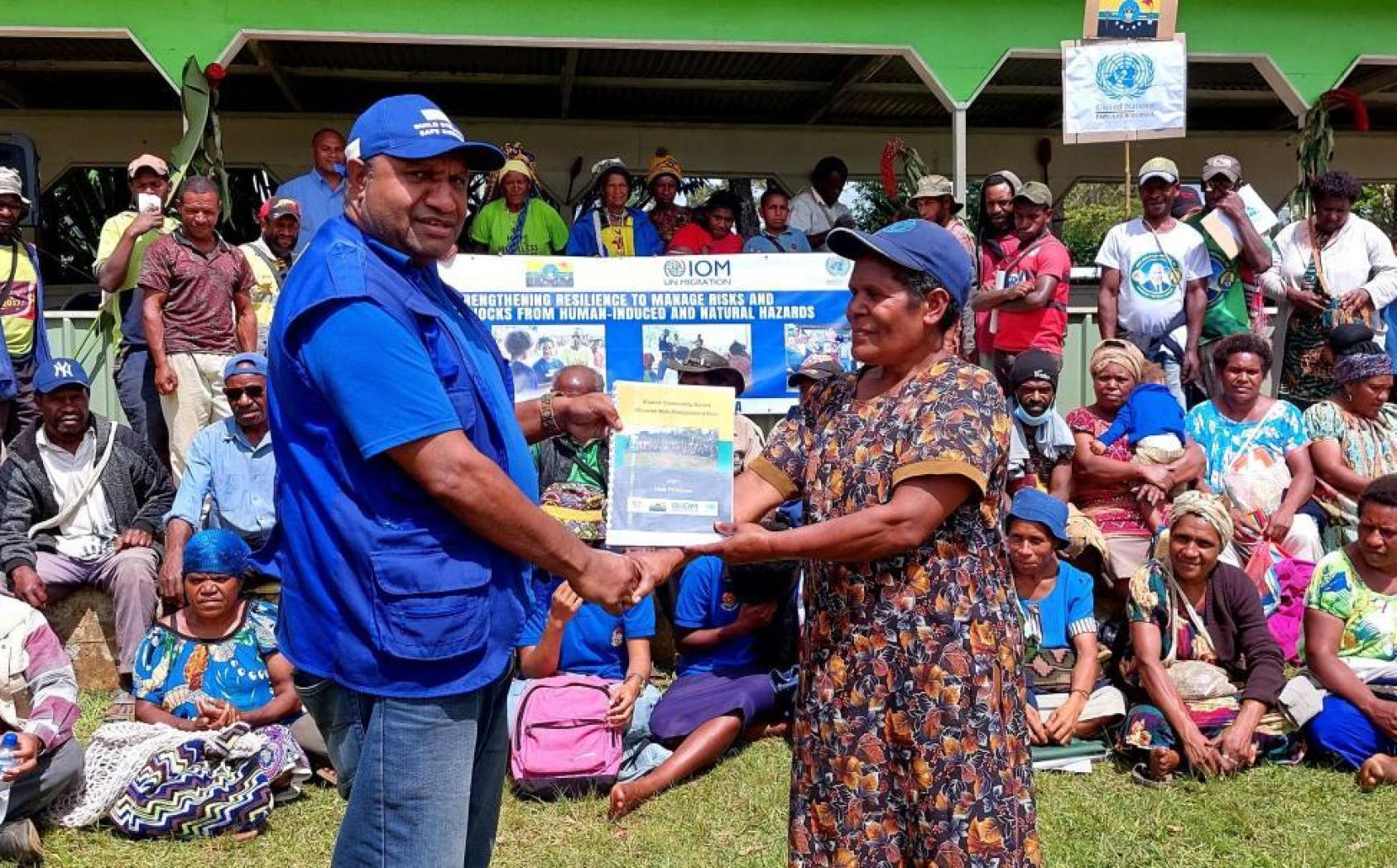United Nations Rallies To Support Papua New Guinea Amid Devastating Landslides

In the wake of a catastrophic landslide in Papua New Guinea, the UN team has swiftly mobilized to provide critical support to the affected communities. With an estimated 7,849 people impacted and 150 structures destroyed due to massive landslides on 24 May, the UN's efforts are focused on immediate humanitarian relief and long-term recovery.
Coordination for immediate and long-term needs
The United Nations Resident Coordinator (RC) in Papua New Guinea, has been at the forefront of these efforts, alongside national authorities, ensuring a coordinated and effective response. Speaking from Port Moresby, the Resident Coordinator Richard Howard highlighted the enormity of the task at hand: "Our immediate priorities are to recover the bodies, conduct geotechnical analysis, and provide essential supplies such as food, clothing, shelter, and medical aid. We are also addressing the need for water purification, relocation support, and logistical assistance."
The situation on the ground is complex, exacerbated by existing tribal conflicts. Despite these challenges, the UN, under the leadership of the RC and with the pivotal role of the Resident Coordinator’s Office (RCO), has managed to support national authorities to keep aid delivery on track. "Security remains a concern, but so far, it has not significantly hindered our efforts," Mr. Howard noted. A geotechnical team from New Zealand has arrived to assess the stability of the terrain, which is crucial for planning further recovery operations.
Community support and resilience
The landslide's impact on the community has been devastating. Families have lost loved ones, homes, and livelihoods. Yet, amidst this tragedy, there is hope and resilience. The international community's response has been overwhelmingly positive, with numerous partners mobilizing to support the relief efforts.
The UN's coordination role is pivotal in this multifaceted response. "We are working hard to ensure a fast, targeted, and accountable response," Mr. Howard emphasized. “The collaboration among international partners, local authorities, and the affected communities is a testament to the spirit of solidarity in times of crisis.”
Recovery and sustainability
Beyond immediate relief, the UN is committed to supporting Papua New Guinea build resilience against future disasters. "Our goal is to move towards early recovery, assisting the government in finding sustainable solutions for disaster preparedness and community rebuilding," Mr. Howard explained.

Chief of Mission in Papua New Guinea for the International Organization for Migration (IOM) Serhan Aktoprak confirmed that despite operational challenges, the UN and its partners are working to establish and maintain organizational capacity for effective and timely responses. Mr. Aktoprak announced the appointment of local expert Robin Yakumb to oversee operations in Wabag, reinforcing the UN's support for local leadership and community engagement.
The effective and timely UN response ensured the immediate needs of the affected population were met. The Government and partners also commended the UN's support in coordinating the national and international response.
For more information about the UN's work in Papua New Guinea, visit papuanewguinea.un.org













